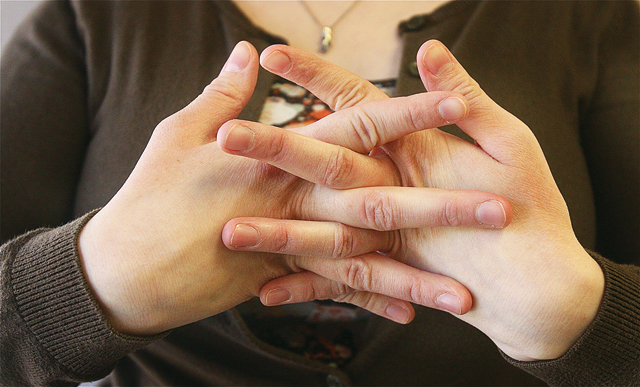Health Column: Doctors say it’s OK to crack yourself up

I’m a crack addict, but it’s not what you’re thinking.
When I was 9, I discovered I could manipulate my ankles with very little effort. My toes, knuckles and elbows soon followed. By the time I was a teenager, I was regularly cracking my back and neck. Now, at 29, I’m a full-blown junkie of the “snap, crackle and pop” variety. It just feels good.
Over the years, I’ve been chastised for the admittedly annoying behavior by a number of well-meaning people. One woman warned me that she had cracked her knuckles so much in her youth that her fingers had swelled and her wedding band no longer fit. Others said I’d get arthritis.
Not so, according to Dr. Roy Prashad of East End Rheumatology in Riverhead.
“It has not been indicated in causing arthritis,” Dr. Prashad told me last week when I asked him if the habit was bad for me. “When you crack the joint, that noise you hear comes from gas bubbles that are forming.”
This theory is nothing new. In fact, it was first posited by scientists in the 1940s. But it wasn’t proven until this year, when researchers from the University of Alberta used MRI imaging to determine the cracking sound is indeed caused when a gas cavity forms between joints. Their findings, which were published April 15 in the online journal Public Library of Science, made international headlines.
Well, phew!
That was good to hear. Even better, longtime Southold chiropractor Dr. Steven Chierchie also told me I have no reason to worry about getting my crack on.
“Repeated manipulation is not a problem,” he reassured me. “Manipulation is wonderful in regard to imparting mobility to fixated areas of the spine.”
But why am I so good at cracking my joints? After all, not everyone has the ability to do it.
Dr. Chierchie said I probably have “hyper-mobile joints.” Dr. Prashad agreed, adding that I appear to exhibit mild symptoms of Ehlers-Danlos syndrome. People with the inherited condition usually have “overly flexible joints and stretchy, fragile skin,” according to the Mayo Clinic.
Hmm. I’m no human Gumby, but the first part of that description sounds right on the money.
Despite all the good news I received about my addiction, Dr. Prashad did say that joint inflammation has been observed in some people who crack their joints. And as far as cracking my own back and neck go, Dr. Chierchie said I should be careful because if I overcompensate and manipulate improperly, I could hurt myself by misaligning my cervical spine. It’s something he’s seen a lot in his 31 years of practice.
“Many people have come in and said, ‘You know, I tried to manipulate my own neck,’ and they can’t move,” he said. “It’s best left in the hands of a professional.”
Have a health question or column idea for Rachel Young? Email her at [email protected].








